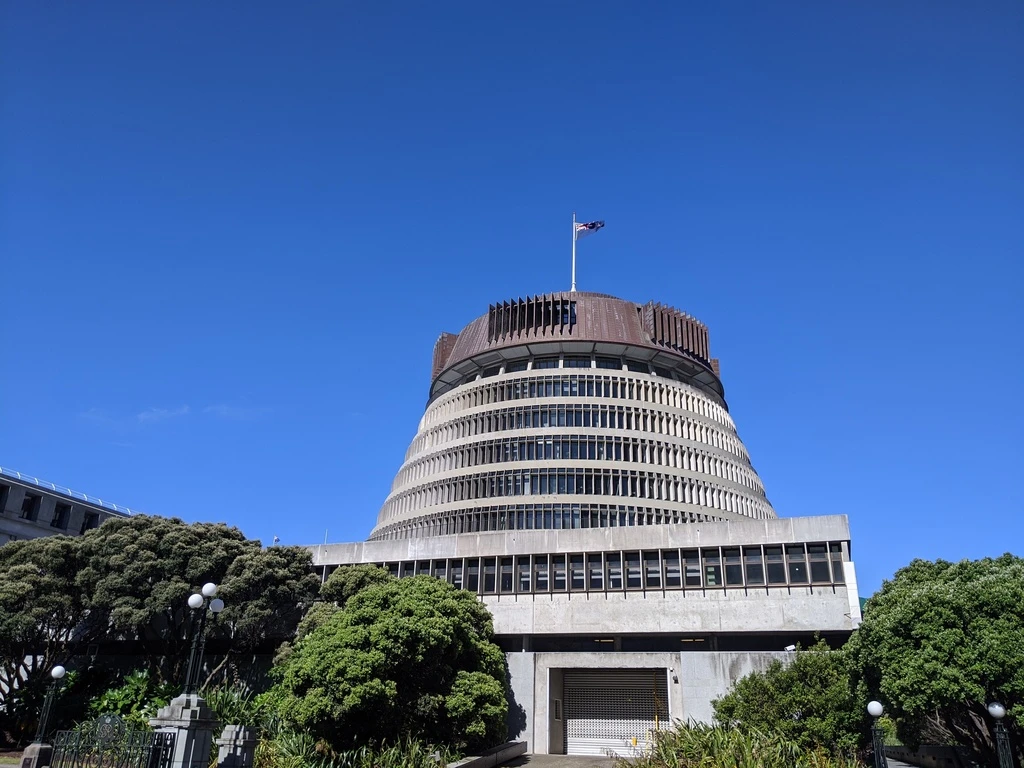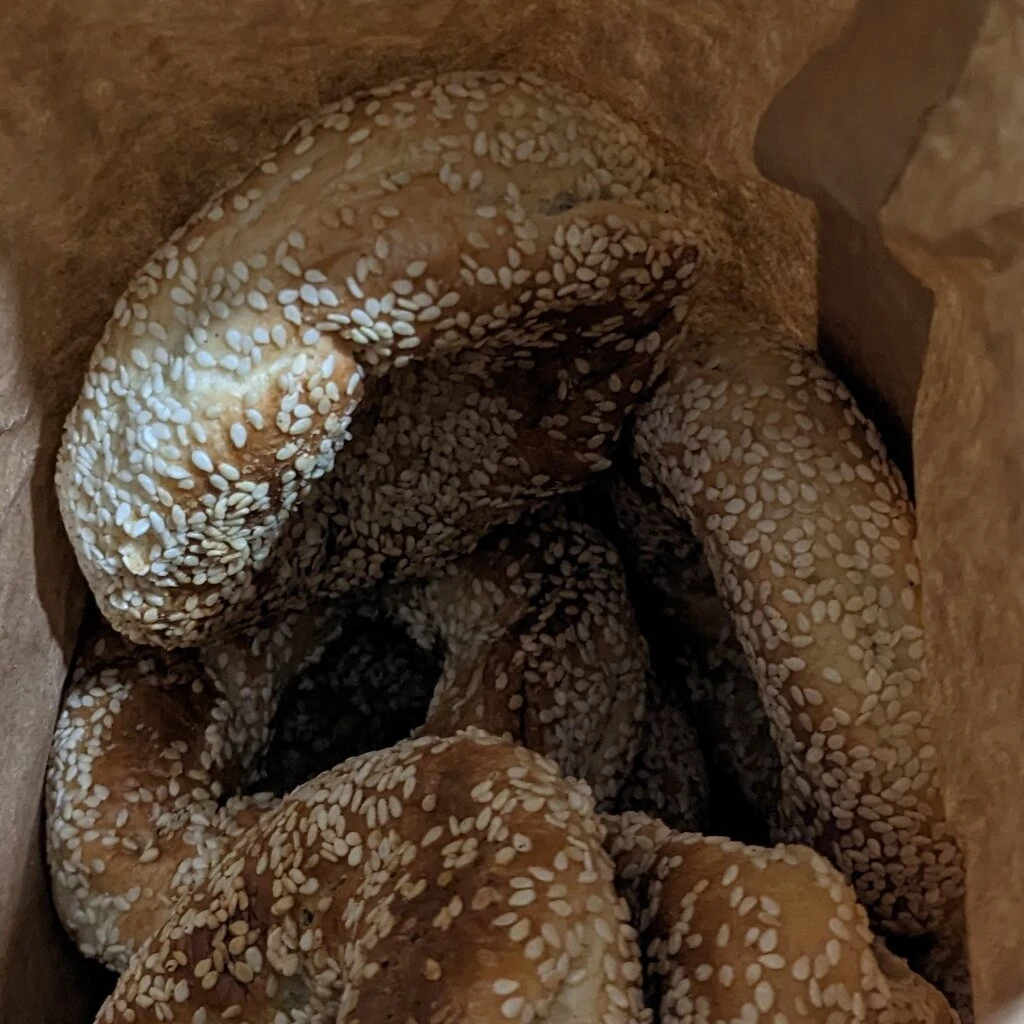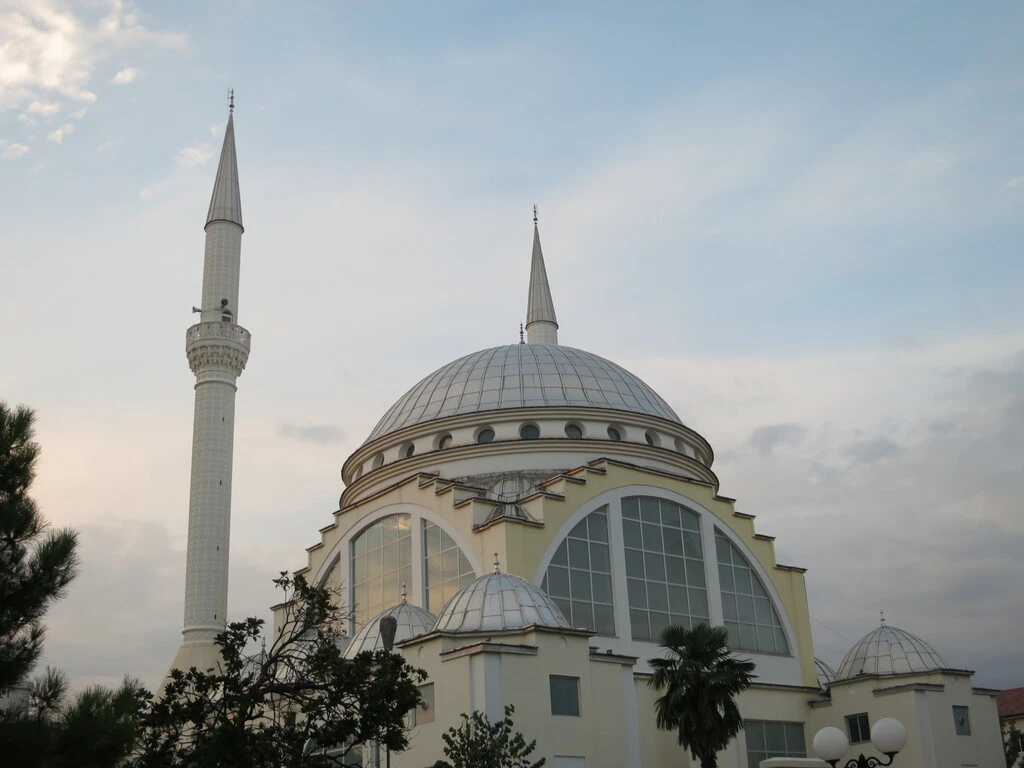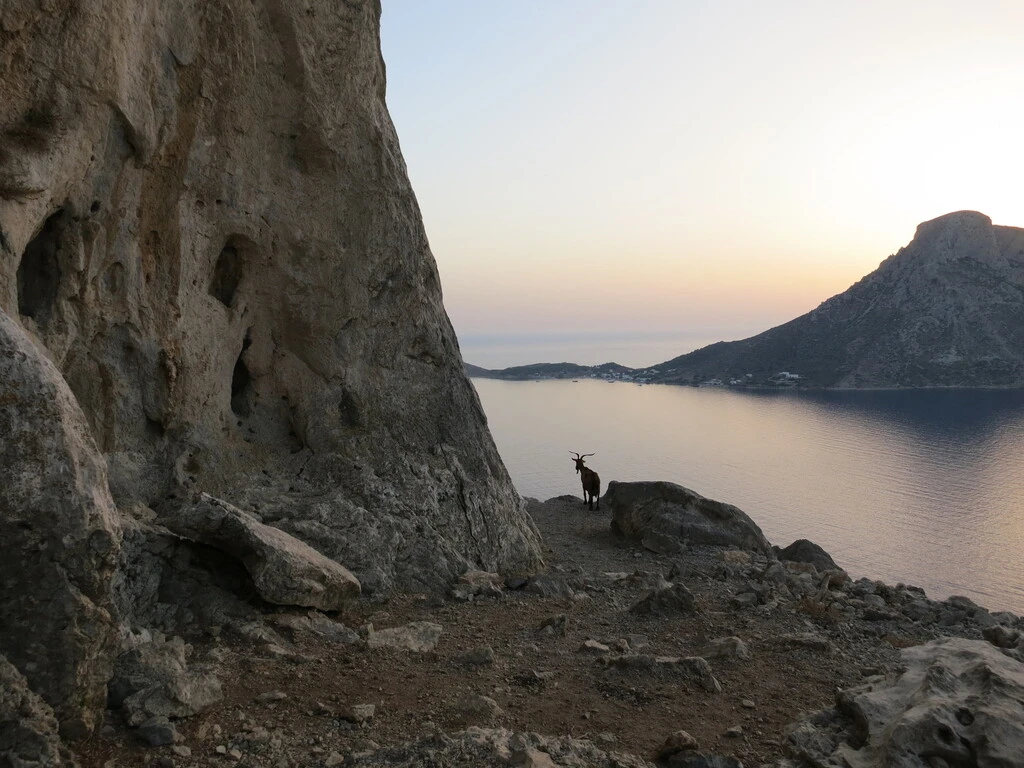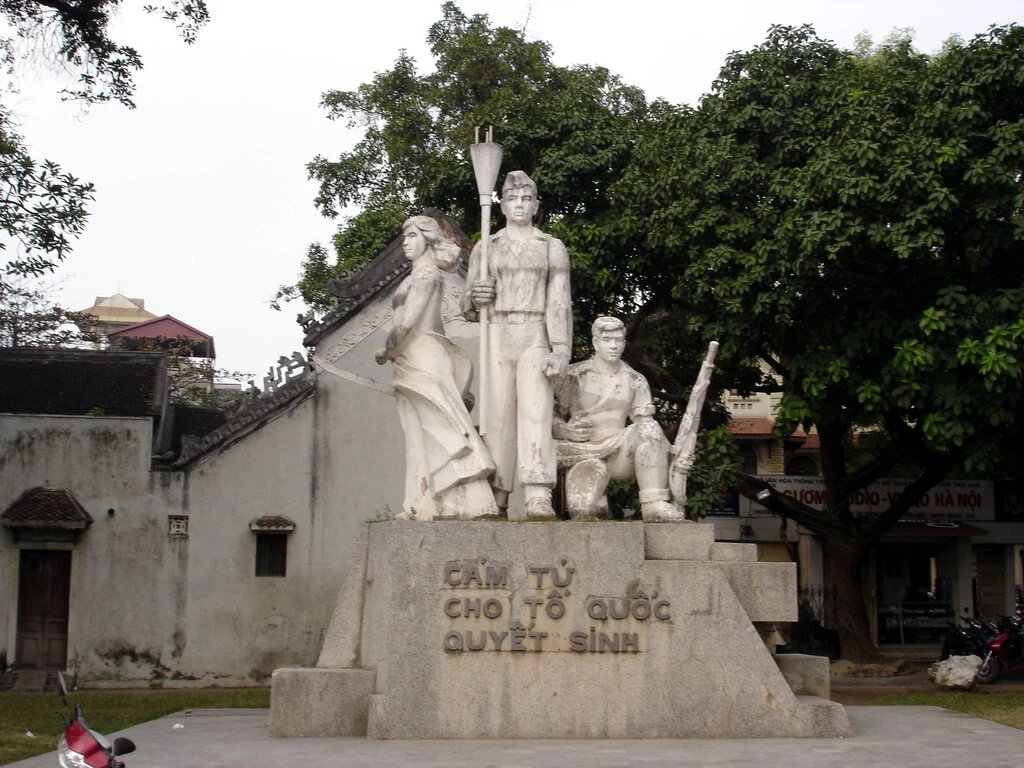After my West Coast tour and Canadian nationals, I set off for New Zealand to join MP. On the way, I got to reading Toula Drimonis’s recent book We, the Others: Allophones, Immigrants, and Belonging in Canada. Her story is not quite my story, but there is a lot of overlap.
Growing up in Quebec
My parents came to Canada in 1975, from Vietnam and via France. I was born in Montreal and am very much a second-generation Quebecois (also: third culture), but haven’t lived in Quebec since 2007 (as a postdoc for a year) or 2000 (as a grad student). English is by far my strongest language, but I’ve given job talks in French: though it’s not perfect, there is no language barrier. I just make mistakes with genders. I can speak Vietnamese, but my basic level of Vietnamese would not be sufficient to function professionally. (I’m sure I could learn if I had to.)
With my name (“Patrick” being chosen by my parents to blend in), and having gone to school in the English system in Montreal, I could totally pass as a typical CBV coming from Markham or something. I can censor myself and code switch, saying “subway” and “corner store” instead of “métro” and “dépanneur”. (Also, consistent with Drimonis’s nephew being given a Greek name, I notice my cousins giving their children Vietnamese names these days; also in recent trends, she points out that more immigrants are being elected than before.)
- NY Times Opinion: I Got My Name From Connie Chung. So Did They. by Connie Wang. As a bit of a counterpoint, talks about mostly Chinese millenial immigrants to the US who all have the name Connie.
But, really, I have much more of a clue about Dollard-des-Ormeaux and Brossard than Brampton versus Brantford. And the socialist Quebec society, with funding for social programs, makes much more sense to me than Ontario’s more individualist Protestant approach. Initiatives like affordable daycare may eventually make it to the rest of Canada, but there is a lag. What I’m saying is that my spouse (Marie-Pascale, obviously not a WASP) and I feel more at home in Quebec than in Ontario. There is a cultural gap.
Still, I can’t honestly say that I know the Quebec of 2023. I know the Quebec of 1995. I’ve read the 2023 Quebec media to some extent, including some of Drimonis’s columns. But, things have changed, and I haven’t lived the changes. I just visit a few times a year. Zero times during peak COVID.
I did miss the whole kerfuffle about CAQ and Quebec immigration policy in the past 4 years. As Drimonis points out, Quebec and Canada need immigration to avoid demographic collapse (hi Japan!). CAQ kind of ignored that, as well as requests from business groups and universities for immigration, and shot Quebec in the foot, before backtracking (to some extent). Before this whole NZ thing, I really didn’t think much about immigration settings. Now I think about them more.
Immigrant experience on easy mode
Aotearoa New Zealand is the unusual twist in my story. We found ourselves in New Zealand in 2020 and decided to stay there as long as possible. We now hold New Zealand resident visas, so we can vote and also, it turns out, be called for jury duty (3 July!). The goal is to get permanent residency in April 2024, giving us options for the future.
In some respects it’s not at all like Drimonis’s tale about her mother not knowing when she would next see her home village. But then again, there was COVID, and we wouldn’t have been able to return to NZ if we had left. So it was a bit like that, except, as she points out, there is WhatsApp and FaceTime.
New Zealand is physically quite far from Canada. Culturally, it’s part of the Commonwealth, and shares many similarities. But it is still a different country! When I’m in New Zealand, I’m an immigrant, which is a novel experience for me. It’s the new-school immigrant experience, on easy mode, where one maintains ties to the homeland as well—in my case, that goes as far as the day job. It’s not like emigrating from Greece to Canada and starting a new life. I know the dominant language, and I have a salary (which I gratefully acknowledge happens to be higher than local salaries). I’ve tried to get up to speed on Maori culture (e.g. the formal greeting is “Tena koe” not “Kia ora”); the local politics; and I’ve worked to be engaged in society. I know what Shortland Street is. But I’ve never watched it. And I didn’t live through the John Key era.
I find that there are some parallels between Pākehā (white people) trying to have their kids learn te reo Maori, and Ontario anglophones trying to have their kids learn French. 3 in 5 New Zealanders think te reo Maori should be a core subject in primary schools. But Canadians outside Quebec don’t necessarily learn French that well in school. The rate of people outside Quebec with “knowledge” (StatsCan term) of French in Canada in 2016 is about 8%, which is about the same as the rate of people who speak Maori “at least fairly well” (StatsNZ term) in New Zealand. The difference for French in Canada is the 7.5 million people in Quebec who speak French.
- Statistics Canada: Language Highlight Tables, 2016 Census
- Stats NZ: Te reo Māori proficiency and support continues to grow
Thoughts about the book
Now, let’s talk about Drimonis’s experience versus mine.
Comparing parents
Drimonis’s father ran restaurants and other business ventures, while her mother was a seamstress. My father instead had an educated white-collar career, having studied at ETS in Montreal. Drimonis writes about how her parents didn’t understand what she did. At some level, like Drimonis, my parents still don’t understand what I do, but for different reasons: no one understands what professors do.
About restauranting: my mom did help out at my aunt’s restaurant for a while. It’s been sold long ago, but sometimes I pass by the place on Van Horne. It certainly wasn’t the primary thing my parents did, though.
- Takeout Kids, a documentary about NZ kids growing up in their parents’ restaurants.
Economic migrants, and also being an average person
As Drimonis points out, immigration law differentiates between refugees, family-reunification, and merit-based streams. Both Canada and NZ generally at least give lip service to our international treaty obligations to accept refugees. Drimonis strongly defends the family-reunification stream as well as people who choose to move to be able to feed themselves, which is economic, but not really. My own parents chose Canada as refugees.
Drimonis also makes the argument that not every immigrant is going to be an NBA star, and that this is fine. Some are, of course, and the host societies greatly benefit from that. But they also benefit from ordinary immigrants contributing to society in ordinary ways. This mirrors an argument I’ve heard about women in tech. It should be OK to not be a superstar, or even to be somewhat mediocre.
A subsequent chapter discusses the pressure to take up the professions. True. But, I’m not an MD. It is also true that our Waterloo Software Engineering classes appear to be full of second-generation immigrants. (“Appear”: we don’t collect those numbers.)
Mythbusting re: Canada the Good
Drimonis writes about how Canada has been, and continues to be, racist. This is no surprise to me in general. And, really, it should not be a surprise to anyone, even if Quebec’s Premier Legault denies the existence of systemic racism. I didn’t know all of the specific incidents, e.g. the Toronto anti-Greek riots of 1918. She also writes about the expectation that immigrants show gratitude; I agree that this expectation is unhealthy and untenable. I contribute to society and I do not accept that I’m here at the pleasure of the dominant groups.
Of course one cannot write about modern Quebec and not include Islamophobia. Drimonis points out that her own Greek Orthodox traditions are in-your-face on Epitafio (held on Good Friday) with loud chanting and firecrackers, but no one complains. It’s a question of perception/what people are used to, plus Quebec being traumatized by its historic domination by the Catholic Church. Also, fake news which fits with peoples’ prejudices spreads fast.
There are occasional lines that elicited a chuckle or more: “Because, if we’re being honest, few Canadians are suited to the climate of this country!” (in the context of banning immigrants “belonging to any race deemed unsuited to the climate or requirements of Canada.”)
There’s also mention of Canada having indeed taken refugees (including my parents, but also others from Southeast Asia, and more recently). This is definitely good, though Europe has taken orders of magnitude more refugees in the Syrian crisis. Geography speaks.
Greece vs Vietnam
Drimonis was more indoctrinated into Greek and immigrant Greek culture than I was into Vietnamese culture. I never went to Vietnamese school. My parents were a lot more interested in making sure that I could integrate into majority society. Which I do, in some ways, but also I’m pretty idiosyncratic. (“Very Plam” is the newest phrase that MP has invented for my antics, which you can read about in great detail elsewhere on this site.)
Indeed, Drimonis’s family even temporarily moved back to Greece when she was eleven, and she opens the book by saying she feels at home both in Greece and in Montreal. I’ve visited Vietnam. It’s very different societies-of-origin. In Vietnam I am very much Viet Kieu, or overseas Vietnamese, ie a guy with a lot of money and a potential mark. I could feel at home in Montreal, but I don’t live there now. Feeling at home is a whole different blog post, though.
Integration
Drimonis writes that after the second generation, immigrant descendants integrate. This is consistent with my experience. All of my cousins are more or less integrated, and their children even more so. We grew up here.
Integration, Drimonis points out, also includes widening one’s point of view. That holds for both the society-at-large and the immigrant. Hummus is great! (“Let’s be blunt. If an entire culture is threatened by a legume, maybe it isn’t robust enough to survive in the first place.”) And immigrants necessarily adjust their own prejudices to fit in; she includes an anecdote about a Syrian refugee and becoming OK with a gay hairdresser.
The first generation maybe doesn’t integrate as much, especially when there are cultural differences. I have seen the old men hanging around and talking, most recently in Brampton, as she mentions.
I hear that this integration-of-immigrant-children is less true in France, but I have no first-hand experience. As far as I can tell, it is generally true in Canada and New Zealand.
Drimonis also writes about layers of identity. Yes, my ethnic background is part of my identity. Many other things are too, like my profession and my hobbies.
- On International education by Shanti Mathias of the Spinoff. Not a huge part of my life story except for the studying-in-the-US part, but it does matter to a lot of people. Oh, and the Faculty of Engineering at Waterloo doesn’t depend much on international undergraduates.
Bill 101
My parents went to some effort to get me educated in English despite Bill 101. Drimonis went to school in English but her youngest sister went to school in French. Had I had kids, I could have sent them to school in French: they couldn’t actually avoid having good English, which was not at all clear for me. And good English is one of my strengths.
Beyond that, Drimonis defends the goals of Bill 101 and the francization of Quebec. From here, I tend to agree. One should absolutely be able to be served in French in Quebec, and I usually speak French in public. But it does seem a bit unfortunate that people have a hard time being able to escape Quebec due to the language barrier—unless they are a part of the elite.
There is a recurring panic attack about people not speaking French at home in Quebec, which Drimonis thinks is overblown. As do I. Look, I do speak English at home, and Vietnamese with my parents, but I can totally function in society in French. Shouldn’t that be what counts?
Bill 21
“For a province that places large crosses on mountains, it was the very definition of exclusionary populism,” writes Drimonis.
This isn’t the inclusive nationalism of René Lévesque, but I’m also not surprised that a Quebec government could pass such a law. We’ve had these discussions since at least the 90s (I remember a photo op in a CEGEP class where we had a guest instructor with a hijab), and we’ve regressed? Drimonis cites the inclusive interculturalism of Lévesque’s PQ as opposed to the exclusive interculturalism of today’s CAQ and as opposed to Canada’s multiculturalism. A decade and a half ago I was in the Orange Julep on Sherbrooke St (closed since 2009) and the old man working there had expressed the old-school inclusive nationalism.
By the second referendum in 1995, and certainly in the Parizeau speech («l’argent… puis des votes ethniques») which, of course, Drimonis quotes, I did not perceive that much inclusiveness.
In the 2020s, though, there are immigrant politicians who support Quebec independence; Drimonis cites Ruba Ghazal (Quebec Solidaire) and Maka Kotto (Parti Quebecois). The Quebec population as a whole just isn’t that interested in independence these days, with a 2020 poll indicating 36% support.
The same problems everywhere?
I often say that it’s the same set of problems everywhere. This isn’t strictly true. Quebec exists in its own context and some things are different. I imagine that it’s harder to recruit French-speaking nurses; the Filipino pool of nurses that supplies many anglophone countries isn’t available. Quebec and New Zealand both need foreign agricultural workforces (the Recognised Seasonal Employer scheme in NZ).
Still, many problems are shared between OECD countries. (The anglosphere housing crisis, which all Waterloo municipal candidates talked about in the 2022 election, is noticeably absent from this book.) Certainly there is contagion from the Brexit and Trump nativist movements, perhaps the biggest political headache that we’re facing in the near future, and a threat to democracy itself.
Conclusion
I enjoyed reading this book. It’s a quick read, though not a light one, due to the subject matter. I agree with most of the positions that Drimonis advocates, and she helped me stay up to date with the Quebec of 2023. Here’s a quote that resonates with me.
“Later that weekend I was at a Montreal wedding where the bride gave a speech in Vietnamese for her parents, switched to French to address her brothers, spoke English while joking around with guests, amd then managed some Punjabi to address her new husband’s family. No one thought anything of it. This is our normal.”
And this is very much not Toronto. Yes, of course there are second languages in Toronto. But there’s no dominant French/English duality which allophones exist outside of.
